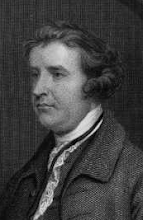Thursday, December 10, 2009
Good Question
December 10, 2009 | By Amanda Reinecker
Is Obamacare Constitutional?
A reporter recently asked House Speaker Nancy Pelosi (D–CA) where in the Constitution Congress is given the authority to force Americans to buy health insurance, she responded, "Are you serious? Are you serious?" Responding to a follow-up question to this non-answer, Pelosi's press secretary said, "That is not a serious question."
We think otherwise at The Heritage Foundation. So should all Americans who value the liberties which our Constitution protects. And once the mandate question is thoroughly examined through the lens of the Constitution's original meaning, the answer is inescapable: it is not constitutional.
"For those with a traditional understanding of the Constitution as a charter of liberty (as opposed to the 'living version'), the list of Congress' powers in Article I, Section 8, grants it no authority to require any such thing, "writes Heritage expert Bob Moffit. To defend their unprecedented expansion of federal power, Obamacare's proponents rely upon excessively broad interpretations of Congress' powers -- namely the powers to regulate interstate commerce and impose taxes.
Commerce and taxing power don't support mandate
In a recent legal memorandum, Heritage legal scholar Todd Gaziano, joined by Georgetown law professor Randy Barnett and Nathaniel Stewart, LLP, argues that the individual mandate is both unconstitutional and unprecedented.
Neither the power to regulate commerce nor the power to impose taxes grants Congress the power, they write, to "mandate that an individual enter into a contract with a private party or purchase a good or service and…no decision or present doctrine of the Supreme Court justifies such a claim of power."
Though many on the Left overlooked it, the nonpartisan Congressional Research Service even recognized the constitutional obstacles to the individual mandate:
Whether such [an individual mandate] requirement would be constitutional under the Commerce Clause is perhaps the most challenging question posed by such a proposal, as it is a novel issue whether Congress may use this clause to require an individual to purchase a good or a service.
The Supreme Court has long held that there are limits to Congress' power under the Commerce Clause. An individual mandate would require stretching these limits. Although this has been done in the past, "the current Supreme Court is unlikely to stretch the commerce power further than it already has," explain Gaziano, Barnett and Stewart.
Congress' power to "lay and collect Taxes, Duties, Imposts and Excises, to pay the Debts and provide for the common Defense and general Welfare of the United States...." also does not validate an individual mandate. The Constitution requires that a tax be apportioned on the basis of the census population, and not vary based upon factors such as the financial condition of the state's residents. "[But] this [constitutional] requirement will be impossible to meet based upon the variety of exceptions provided in the mandate," write Gaziano, Barnett and Stewart.
Interpreting the Constitution to support an individual mandate would open the door for future abuses, as Heritage's Conn Carroll explains:
If the individual mandate is Constitutional, then Congress could do anything. They could: require us to buy a new Chevy Impala each year to support the government-supported auto industry; require us to buy war bonds to pay for the Iraq and Afghan wars; require us to grow wheat (10 bushels each), or pay someone else to grow your share; require us to buy whatever they want.
"Politics may tell us what we want to do, but the Constitution tells us what we may do and we must keep those separate," Sen. Orrin Hatch (R-UT) said yesterday at a Heritage event on the Constitution's role in the health care debate. An individual mandate that forces all Americans to purchase health coverage or incur a penalty would blur this separation horribly. And that's a serious problem.
> Other Heritage work of note
Are you a fan of The Heritage Foundation on Facebook? We're nearly at 100,000 fans—so join the conversation today!
Two factors are leaving the unemployment rate at its highest rate in decades, writes Heritage labor policy expert James Sherk: businesses are creating fewer jobs; and people without a job are remaining unemployed longer. In an effort to correct this, President Obama has proposed eliminating capital-gains taxes on small businesses and extending write-offs for small-business investment. This alone is a step forward, Sherk writes. Unfortunately, other elements of the President's "pro-employment" strategy rely on more government spending to create more taxpayer-funded jobs. "Bigger government doesn't encourage entrepreneurs to create jobs," Sherk notes.
"Americans take many things for granted: our high standard of living, our low infant mortality rate and our democratic government, to name a few," writes Heritage expert Israel Ortega. "Witnessing firsthand the 2009 Honduran presidential election reminded me of all these things." By turning out in massive numbers despite threats of violence, the Honduran people exhibited "bravery in defending the rule of law and a democratic form of government," Ortega explains. And for this they deserve our support.
Good reviews continue to pile up for We Still Hold These Truths, the new book by Heritage scholar Matthew Spalding. Writing in the Washington Times, former speechwriter John Coyne praises the book. "In this splendid, strongly written study, Mr. Spalding sets out to halt the slide toward mindless collectivism by setting out a strategy for restoring America's defining principles and reincorporating them into the social, political and economic life of our nation."
Order your copy of We Still Hold These Truths today.
> In other news
A Congressional committee has passed legislation that would mandate a playoff system for college football. While replacing the current BCS system with a playoff might be a fine idea that plays well with voters -- particularly those who feel jilted by the current system -- it certainly isn't the business of the federal government.
The Rev. Jesse Jackson is urging the administration to target economic aid at specific ethnic groups. To his credit, President Obama is rejecting this idea, the Washington Post reports.
President Obama, accepted the accepted the Nobel Peace prize today, just nine days after he ordered 30,000 more U.S. troops to deploy to Afghanistan and less than one year after taking office. The President is the third sitting president to ever to win the prize.
Treasury Secretary Timothy Geithner announced that the Obama administration will extend the $700 billion TARP bailout through October of 2010.
President Obama has expressed interest in a third "stimulus" program that would have the government spend even more money in an effort to prop up the economy.
> Coming up at Heritage
To attend these or any other events at Heritage please RSVP at Heritage's website. Or you can view these events live online. All times are Eastern.
On Monday, December 14 at 10:30 a.m., a panel of experts will explore The Threat of Islamist Terrorism: Have We Become Complacent?
Amanda Reinecker is a writer for MyHeritage.org—a website for members and supporters of The Heritage Foundation. Nathaniel Ward, the Editor of MyHeritage.org, contributed to this report.
Is Obamacare Constitutional?
A reporter recently asked House Speaker Nancy Pelosi (D–CA) where in the Constitution Congress is given the authority to force Americans to buy health insurance, she responded, "Are you serious? Are you serious?" Responding to a follow-up question to this non-answer, Pelosi's press secretary said, "That is not a serious question."
We think otherwise at The Heritage Foundation. So should all Americans who value the liberties which our Constitution protects. And once the mandate question is thoroughly examined through the lens of the Constitution's original meaning, the answer is inescapable: it is not constitutional.
"For those with a traditional understanding of the Constitution as a charter of liberty (as opposed to the 'living version'), the list of Congress' powers in Article I, Section 8, grants it no authority to require any such thing, "writes Heritage expert Bob Moffit. To defend their unprecedented expansion of federal power, Obamacare's proponents rely upon excessively broad interpretations of Congress' powers -- namely the powers to regulate interstate commerce and impose taxes.
Commerce and taxing power don't support mandate
In a recent legal memorandum, Heritage legal scholar Todd Gaziano, joined by Georgetown law professor Randy Barnett and Nathaniel Stewart, LLP, argues that the individual mandate is both unconstitutional and unprecedented.
Neither the power to regulate commerce nor the power to impose taxes grants Congress the power, they write, to "mandate that an individual enter into a contract with a private party or purchase a good or service and…no decision or present doctrine of the Supreme Court justifies such a claim of power."
Though many on the Left overlooked it, the nonpartisan Congressional Research Service even recognized the constitutional obstacles to the individual mandate:
Whether such [an individual mandate] requirement would be constitutional under the Commerce Clause is perhaps the most challenging question posed by such a proposal, as it is a novel issue whether Congress may use this clause to require an individual to purchase a good or a service.
The Supreme Court has long held that there are limits to Congress' power under the Commerce Clause. An individual mandate would require stretching these limits. Although this has been done in the past, "the current Supreme Court is unlikely to stretch the commerce power further than it already has," explain Gaziano, Barnett and Stewart.
Congress' power to "lay and collect Taxes, Duties, Imposts and Excises, to pay the Debts and provide for the common Defense and general Welfare of the United States...." also does not validate an individual mandate. The Constitution requires that a tax be apportioned on the basis of the census population, and not vary based upon factors such as the financial condition of the state's residents. "[But] this [constitutional] requirement will be impossible to meet based upon the variety of exceptions provided in the mandate," write Gaziano, Barnett and Stewart.
Interpreting the Constitution to support an individual mandate would open the door for future abuses, as Heritage's Conn Carroll explains:
If the individual mandate is Constitutional, then Congress could do anything. They could: require us to buy a new Chevy Impala each year to support the government-supported auto industry; require us to buy war bonds to pay for the Iraq and Afghan wars; require us to grow wheat (10 bushels each), or pay someone else to grow your share; require us to buy whatever they want.
"Politics may tell us what we want to do, but the Constitution tells us what we may do and we must keep those separate," Sen. Orrin Hatch (R-UT) said yesterday at a Heritage event on the Constitution's role in the health care debate. An individual mandate that forces all Americans to purchase health coverage or incur a penalty would blur this separation horribly. And that's a serious problem.
> Other Heritage work of note
Are you a fan of The Heritage Foundation on Facebook? We're nearly at 100,000 fans—so join the conversation today!
Two factors are leaving the unemployment rate at its highest rate in decades, writes Heritage labor policy expert James Sherk: businesses are creating fewer jobs; and people without a job are remaining unemployed longer. In an effort to correct this, President Obama has proposed eliminating capital-gains taxes on small businesses and extending write-offs for small-business investment. This alone is a step forward, Sherk writes. Unfortunately, other elements of the President's "pro-employment" strategy rely on more government spending to create more taxpayer-funded jobs. "Bigger government doesn't encourage entrepreneurs to create jobs," Sherk notes.
"Americans take many things for granted: our high standard of living, our low infant mortality rate and our democratic government, to name a few," writes Heritage expert Israel Ortega. "Witnessing firsthand the 2009 Honduran presidential election reminded me of all these things." By turning out in massive numbers despite threats of violence, the Honduran people exhibited "bravery in defending the rule of law and a democratic form of government," Ortega explains. And for this they deserve our support.
Good reviews continue to pile up for We Still Hold These Truths, the new book by Heritage scholar Matthew Spalding. Writing in the Washington Times, former speechwriter John Coyne praises the book. "In this splendid, strongly written study, Mr. Spalding sets out to halt the slide toward mindless collectivism by setting out a strategy for restoring America's defining principles and reincorporating them into the social, political and economic life of our nation."
Order your copy of We Still Hold These Truths today.
> In other news
A Congressional committee has passed legislation that would mandate a playoff system for college football. While replacing the current BCS system with a playoff might be a fine idea that plays well with voters -- particularly those who feel jilted by the current system -- it certainly isn't the business of the federal government.
The Rev. Jesse Jackson is urging the administration to target economic aid at specific ethnic groups. To his credit, President Obama is rejecting this idea, the Washington Post reports.
President Obama, accepted the accepted the Nobel Peace prize today, just nine days after he ordered 30,000 more U.S. troops to deploy to Afghanistan and less than one year after taking office. The President is the third sitting president to ever to win the prize.
Treasury Secretary Timothy Geithner announced that the Obama administration will extend the $700 billion TARP bailout through October of 2010.
President Obama has expressed interest in a third "stimulus" program that would have the government spend even more money in an effort to prop up the economy.
> Coming up at Heritage
To attend these or any other events at Heritage please RSVP at Heritage's website. Or you can view these events live online. All times are Eastern.
On Monday, December 14 at 10:30 a.m., a panel of experts will explore The Threat of Islamist Terrorism: Have We Become Complacent?
Amanda Reinecker is a writer for MyHeritage.org—a website for members and supporters of The Heritage Foundation. Nathaniel Ward, the Editor of MyHeritage.org, contributed to this report.
Labels:
http://www.myheritage.org
Subscribe to:
Post Comments (Atom)













































No comments:
Post a Comment